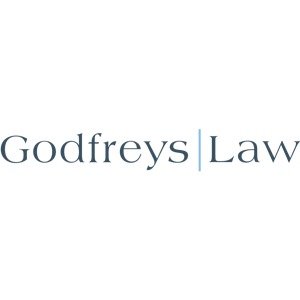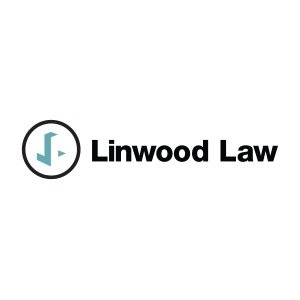Best Renewable & Alternative Energy Lawyers in Christchurch
Share your needs with us, get contacted by law firms.
Free. Takes 2 min.
List of the best lawyers in Christchurch, New Zealand
About Renewable & Alternative Energy Law in Christchurch, New Zealand
Christchurch, like the rest of New Zealand, is undergoing a significant transition towards clean and sustainable energy sources. Renewable and alternative energy law covers the legal framework that guides how energy is generated from non-fossil fuel sources such as solar, wind, hydro, and bioenergy. Christchurch’s local initiatives support the national goal for a low-emissions future, spurred by events like the Canterbury earthquakes and an increased focus on climate change resilience. These laws address how energy projects are planned, permitted, operated, and regulated, balancing private business interests, community impact, and environmental obligations.
Why You May Need a Lawyer
Legal assistance can be crucial when navigating the complex landscape of renewable and alternative energy in Christchurch. You may need a lawyer in the following situations:
- Developing or investing in solar, wind, or hydro projects and needing help with resource consents. - Understanding property rights and negotiating land use agreements for energy generation or transmission. - Ensuring compliance with national and local energy regulations. - Protecting intellectual property for new energy technologies. - Managing disputes or challenges related to environmental impacts. - Negotiating commercial contracts such as power purchase agreements. - Dealing with local council requirements or community opposition. - Navigating incentives, subsidies, or carbon credit schemes.
Local Laws Overview
Several key laws and policies govern renewable and alternative energy in Christchurch:
- The Resource Management Act 1991 (RMA) sets out requirements for obtaining resource consents for energy projects, with specific focus on sustainable management. - The Building Act 2004 regulates the construction and installation of energy infrastructure. - Christchurch City Council’s District Plan outlines where and how renewable energy projects can be sited, including related zoning rules. - The Electricity Industry Act 2010 and related regulations affect connection to the grid and commercial operation. - The Climate Change Response Act and Emissions Trading Scheme provide incentives and obligations for reducing greenhouse emissions. - Local policies may provide additional grants or support for renewable energy initiatives.
Together, these laws ensure that energy projects promote sustainability, safety, and community wellbeing. Any new project must typically pass through consenting processes that examine environmental, social, and economic impacts.
Frequently Asked Questions
What renewable energy options are most popular in Christchurch?
Solar power, small wind turbines, and micro-hydro are among the most common renewable energy sources adopted by homes and businesses in Christchurch.
Do I need a building or resource consent to install solar panels?
Small-scale solar installations on residential buildings often do not require a resource consent but may require building consent. Larger or commercial projects usually require both.
What is a power purchase agreement?
A power purchase agreement is a contract between an energy producer and a buyer to purchase electricity generated from renewable sources at agreed rates over a set period.
Can I sell excess energy from my home solar system to the grid?
Yes, homeowners can sell surplus electricity generated from their systems to local power providers, but must arrange appropriate metering and agreements with electricity retailers.
Are there government grants or incentives available for renewable energy?
Yes, there are various national and local grants, rebates, and support schemes to help cover the costs of installing renewable energy systems. Eligibility may vary depending on the project type and location.
What environmental assessments are required for renewable energy projects?
Projects generally require assessment of their effects on the environment, particularly for larger or commercial ventures. The scale of assessment depends on the project's size, location, and potential impact.
How do local zoning laws affect where I can build renewable energy installations?
Christchurch’s District Plan designates areas for specific activities. Some renewable energy projects may be limited or restricted in certain zones, especially in residential or environmentally sensitive areas.
What legal challenges could arise during project development?
Challenges may include objections from local residents, environmental impact concerns, difficulty securing consents or permits, disputes with suppliers, or contract issues with grid connection or power sales.
Is connecting to the national grid straightforward for renewable projects?
Connecting to the national grid requires meeting technical standards, negotiating terms with power companies, and obtaining appropriate approvals. The process can involve considerable legal and technical requirements.
How can I resolve a dispute over land use for an energy project?
Legal disputes regarding land use often involve negotiation, mediation, or arbitration. A lawyer can help you understand your rights, represent your interests, and seek resolution through formal or informal means.
Additional Resources
If you need further support or information, consider contacting or researching the following:
- Christchurch City Council Planning and Consenting teams. - New Zealand Ministry of Business, Innovation and Employment (MBIE) Energy and Resources division. - Electricity Authority. - Energy Efficiency and Conservation Authority (EECA). - New Zealand Wind Energy Association. - Sustainable Energy Association of New Zealand. - Community Energy Network.
Next Steps
If you require legal assistance in the field of renewable and alternative energy in Christchurch, begin by identifying your specific needs such as consents, contracts, or dispute resolution. Gather relevant documents and details about your project or concerns. Contact a local lawyer or specialist firm experienced in energy law. They can provide tailored advice, explain your legal obligations and rights, and help guide you through the required processes. Prompt action can help preempt challenges, ensuring your project complies with all relevant laws and has the best chance of success.
Lawzana helps you find the best lawyers and law firms in Christchurch through a curated and pre-screened list of qualified legal professionals. Our platform offers rankings and detailed profiles of attorneys and law firms, allowing you to compare based on practice areas, including Renewable & Alternative Energy, experience, and client feedback.
Each profile includes a description of the firm's areas of practice, client reviews, team members and partners, year of establishment, spoken languages, office locations, contact information, social media presence, and any published articles or resources. Most firms on our platform speak English and are experienced in both local and international legal matters.
Get a quote from top-rated law firms in Christchurch, New Zealand — quickly, securely, and without unnecessary hassle.
Disclaimer:
The information provided on this page is for general informational purposes only and does not constitute legal advice. While we strive to ensure the accuracy and relevance of the content, legal information may change over time, and interpretations of the law can vary. You should always consult with a qualified legal professional for advice specific to your situation.
We disclaim all liability for actions taken or not taken based on the content of this page. If you believe any information is incorrect or outdated, please contact us, and we will review and update it where appropriate.

















